CIA Sponsored Terror, Civil Liberties, Criminalizing Dissent, FBI Intrusion, Habeas Corpus, Human Rights, Political Prisoner, Prison Industry, Supreme Court, Surveillance, Truth to Power, War Resister
Podcast: Play in new window | Download
Updates:
- Wikileaks Film titled The Fifth Estate Is A Propaganda Piece Against the Disclosures of Wikileaks
- Wikileaks Film titled MediaStan Is Produced By Julian Assange
—-

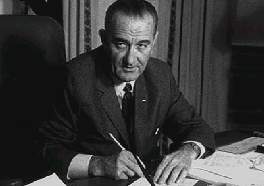
50th Anniversary of the Kennedy Assassination – Zachary Sklar, Screenwriter of the Film: JFK
November 22, 2013 will mark the 50th anniversary of the assassination of President John F. Kennedy. More than 600 books have been written on this national tragedy and yet the implausible explanations the Warren Commission report put forward remain as the official story. We’re joined today by Zachary Sklar to discuss some of those challenges and his work investigating those involved in the planning and covering up of assassinations.
Zach Sklar:
- The Warren Commission was a creature appointed by Lyndon Johnson.
- He persuaded Earl Warren to head this commission against his wishes. He was Chief Justice of the Supreme Court at the time.
- To bolster him on the commission, the one who did most of the work and guided the findings was Alan Dulles, former CIA directory. A man who’d been fired by John Kennedy after the Bay of Pigs invasion.
- The other one who was on it was Gerald Ford of course.
- So, there was a dissenting group of southern Congress people who really didn’t have much power. Ultimately, the power was with Alan Dulles.
- The CIA had overthrown Mossadegh in Iran, Arbenz in Guatemala, not only overthrowing governments but assassinating leaders.
- The commission report – that conclusion was decided upon and then they had to come up with some reasons to support it.
- The reasons were designed by Arlen Specter. He was a staff lawyer at the time and later a Senator from Pennsylvania. He came up with the Magic Bullet Theory.
- Because the Zapruder film came out with the time frame of 5.62 seconds and there were 3 bullets during that time frame, all the wounds in John Kennedy and John Connelly.
- Lee Oswald was given a paraffin test the day of his arrest. It was negative. It had proven he’d not fired a rifle that day.
- According to the Marines, Oswald was a mediocre marksman at best.
- The rifle that he was supposed to have used. . . if you ask any rifle dealer what the worst rifle, the least accurate rifle you could ever come up with they would tell you its the Mannlicher-Carcano. It’s called the humanitarian rifle by the Italians.
- All this should’ve been put to rest in 1979 when the House Select Committee on Assassinations investigated and came up with acoustical evidence from a police dictabelt recording and found that there was a 4th shot.
- If there was a 4th shot, there had to have been a second shooter. If there was a second shooter, there had to have been a conspiracy.
- Kennedy was well aware that the anti-Communist ideology of the cold warriors was fundamentally flawed. The whole domino theory is fundamentally flawed.
- After he was killed, very quickly, his (Kennedy’s) policies were reversed by Lyndon Johnson.
- The fact is that 4 days after he was killed Lyndon Johnson issued National Security Action Memorandum 273 which reversed Kennedy’s order and actually ok’s US military operations in Vietnam.
- On the very day he was assassinated Kennedy had sent a liaison to Cuba, to negotiate with Fidel Castro.
- At the top of the list are the leaders of the CIA.
- You have to understand that the Cold War had gone on for a long time, and people made careers, peoples’ livelihoods depended on the Cold War continuing. Big defense contracts depended on it.
- A lot of people had the motivation to kill Kennedy.
Guest – Zachary Sklar, Oscar-nominated co-screenwriter of Oliver Stone’s film JFK, and author of the book JFK: The Book of the Film. He’s a journalist, and a professor at the Columbia School of Journalism. He was also a contributor to The Lies of Our Times, a monthly journal dedicated to exposing the truth behind the mainstream media. Zach collaborated with director Oliver Stone on the screenplay of the movie “JFK” and was editor of Jim Garrison’s book “On the Trail of the Assassins.”
—–

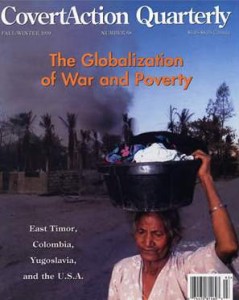
Lawyers You’ll Like: Attorney Bill Schapp
Attorney William Schaap graduated from the University of Chicago Law School in 1964 and has been a practicing lawyer since. Bill specialized in military law and practiced in Asia and Europe. He later became the editor in chief of the Military Law Reporter in Washington for a number of years. In the 70’s and 80’s he was a staff counsel of the Center for Constitutional Rights in New York City. In the late 80s, he was an adjunct professor at John J. College of Criminal Justice of the City University of New York where he taught courses on propaganda and disinformation.
Attorney William Schapp:
- One of first cases at this big Wall Street firm, they had some outside counsel working on it, one of whom was David Lubel, and Dave Lubel who had I think been a recruiter for the Communist Party in his youth, was always good at spotting somebody who was always worth recruiting and he started to tell me there was this convention of this lawyers group.
- It was this 1967 Lawyers Guild Convention in New York. He dragged me to one event, I met Bill Kunstler, I met Arthur Kinoy, I met Victor Rabbinowitz. I’d been on Wall Street for a year or two, I said I didn’t know there were lawyers like this.
- I joined the same day and met Bernadine Dorhn and a few weeks she called me and said we need your help.
- She said you gotta defend a bunch of Columbia students. The next thing I knew the riot started at Columbia and she said you have to go down there and defend them.
- I signed up to be staff counsel on the National Lawyers Guild Military Law Project in Okinawa, Japan.
- When you work overseas in that kind of a climate with the military you learn a lot fast about American imperialism.
- Once you learn that, you learn about the CIA.
- That led us to originally working on Counter Spy magazine and then on Covert Action Magazine.
- The original purpose was to expose the CIA. We worked with Lou Wolf who is an expert in uncovering CIA agents in US embassies, not through any classified documents but because if you knew how to read the paperwork and State Department things, you could tell who are the “ringers.”
- We were so successful that Congress passed a law against us.
- Our goal was to make these people ineffective because the only way most CIA could work, particularly the ones that were assigned to an embassy was to have to pretend to be something else.
- They were all third assistant political secretaries and those were all phony things. Their job was to finagle their way into various community organizations in whatever foreign capital they were posted to recruit people to turn against their own countries and become traitors to their own countries, to become spies for the U.S.
- We thought if we identified these people, it might make their job a little bit harder, which it did.
- Of course, the problem with that is the government said we were trying to get them killed which we weren’t trying to do and nobody we did expose ever did get killed.
- He (Philip Agee) had been an adviser to Counter Spy. Counter Spy folded when Welch got killed, cause the pressure was too much and started Covert Action Quarterly.
- He was not the person discovering who the under cover people were, Lou Wolf was doing that.
- Phil wrote articles for us in every issue and we worked very closely with him.
- Once you start exposing these things, they really don’t have any defense.
- They tried to catch us in something phony. We would get tips that would turn out to be CIA trying to get us to print some story that wasn’t true so they could then discredit us.
- We had more interference from the government when we were doing military law work, before Covert Action Quarterly.
- They would plant bugs in our attic in Okinawa, things like that.
- The Intelligence Identity Protection Act has 2 parts. One makes it a crime for someone in the government who has classified information to reveal someone’s identity. The second part makes it a crime to reveal the identity of someone you did not learn from classified information or you position. (But if you were in the business of exposing these people . . .)
- Regarding his newsletter The Lies of Our Times – It was in the 90s, from 1990 to 1995 I think. To a certain extent, the abuses we were crying about got a little bit less over time because that’s sometimes the helpful result of that kind of exposure.
- We were just tired of people thinking that if it was in the New York Times it must be true.
- The fact is that those people lie all the time.
- I think we’ve gotten to a point where people recognize that the government lies to them and that there’s an awful lot that goes on that they don’t know.
Guest – Attorney William Schapp graduated from the University of Chicago Law School in 1964 and has been a practicing lawyer since. Bill specialized in military law and practiced in Asia and Europe. He later became the editor in chief of the Military Law Reporter in Washington for a number of years. In the 70’s and 80’s he was a staff counsel of the Center for Constitutional Rights in New York City. In the late 80s, he was an adjunct professor at John J. College of Criminal Justice of the City University of New York where he taught courses on propaganda and disinformation.
In addition to being a practicing lawyer, Bill was a journalist, publisher and a writer specializing in intelligence as it relates to media. He was the co-publisher of a magazine called the Covert Action Quarterly for more than 20 years. He also published a magazine on propaganda and disinformation titled Lies Of Our Times. Attorney Bill Schapp has written numerous articles and edited many books on the topic of media and intelligence.
——————————————————————
CIA Sponsored Terror, Civil Liberties, Criminalizing Dissent, Habeas Corpus, Human Rights, Prison Industry, Surveillance, Torture, War Resister
Podcast: Play in new window | Download
Updates:
- Abu Anas al-Libi Kidapping Update
- Glenn Greenwald Leaves The Guardian
—–
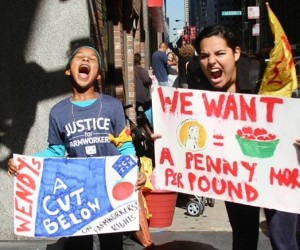

The Coalition of Immokalee Workers March On Union Square For Wendy’s Fair Food Campaign
We hear the voices of marchers involved in supporting the Coalition of Immokalee workers to urge Wendy’s to join its four fast food competitors in the award-winning social responsibility program that’s putting an end to decades of abuse in the fields. Burger King, Taco Bell, McDonald’s and others have come to the table to dialogue with farm workers to improve wages and working conditions in their supply chains. This demonstration was held on the eve of the CIW winning the Roosevelt Institute’s Freedom from Want Medal.
—-

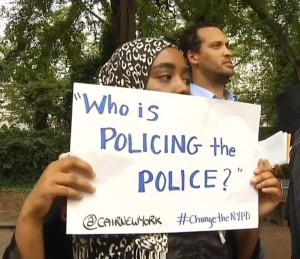
Handschu Hearing on NYPD Muslim Surveillance
Earlier this month, the federal district court in Manhattan required the New York City Police Department to defend its Muslim spying program. The hearing lasted several hours and revealed what many listeners to this show may already know, and that is how the NYPD Muslim spying program has been found by the Associated Press to target innocent Muslims based on nothing more than their faith. The fallout from these spying programs are revealed in the stories related by today’s guest .
Fahd Ahmed:
- DRUM stands for Desis Rising Up and Moving. It’s a community organization of low income South Asians, organizing for worker rights, immigrant rights, racial justice.
- We’re a membership based organization of about 2000 low income South Asians. So they’re directly effected by these issues.
- About 2 years ago the Associated Press started releasing a series of articles that essentially confirmed what people in our communities had been feeling for years.
- That the NYPD has an extensive spying network on the New York City Muslim community.
- From their houses of worship to their work sites, to their social networks. The way that they accomplish this is through the use of under cover officers.
- Through the use of informants, many of whom are paid money for their services, and also through the use of surveillance equipment.
- We have members in our organization that have been directly targeted by the NYPD over the last 8-9 years.
- Even if you’re not doing anything wrong, this program is very bad for you.
- On the day the first AP report came out, we had launched a survey project to collect data.
- An Arab cab driver who cooperated with the police, he was eye witness to the person who conducted the robbery.
- He testified in court, the person was convicted. The NYPD then approached him several months later and said we’d like to talk with you about that case.
- They tell him we want you to become an informant for us. When he declines, for the next two weeks he ends up being followed in dark unmarked cars.
- We do believe its about a few 100 hundred in the police department in terms of intelligence.
Guest – Fahd Ahmed, Fahd came to the United States as an undocumented immigrant from Pakistan in 1991, and went on to attend Vanderbilt University, and CUNY School of Law. Fahd joined DRUM in 2000 when he had family members facing deportations. Within DRUM, Fahd led the work with Muslim, Arab, and South Asian immigrant detainees before, and immediately after 9/11, by coordinating the detainee visitation program. Fahd was a recipient of the Haywood Burns Fellowship from the National Lawyers Guild, served as an Ella Baker intern at the Center for Constitutional Rights, as a legal consultant with the Juvenile Justice Project of Louisiana, and as a lecturer and researcher on Islamophobia, National Security, and social movements at the Arab and Muslim Ethnicities and Diasporas Initiative at the College of Ethnic Studies at San Francisco State University
—-
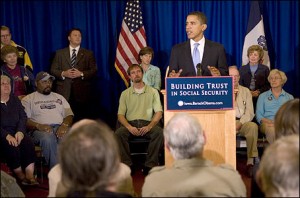

Two And A Half Party System Debt Ceiling Crisis
Today we’ll examine in depth how the United States reached the recent crisis with regard to debt ceiling. If you think its just the Tea Party that wants to cut current government benefits such as Social Security and Medicare you’d be wrong. It’s also the Obama Administration
Professor Jack Rasmus:
- The Republicans strategic focus since 2011 has been to cut the deficit at the expense of discretionary spending and in particular to target social security and medicare and medicaid.
- In the fiscal cliff deal of last year, they succeeded in pushing through most of the Bush tax cuts. 4 trillion in tax cuts.
- The Republicans in the last 2 years have cut 2.2 trillion dollars in government spending.
- They’re going to use the debt ceiling in order to extract more spending cuts, this time, social security and medicare, and probably more tax cuts.
- Obama has already called for 630 billion dollars in social security and medicare cuts. That’s a starting point, a beginning of negotiating.
- What’s happened is that the tea party have injected themselves into this thing. We’ve got 2 and a half parties in Congress now. The Tea Party is a faction of the Republican Party and its terrorizing the Republican Party even though its a minority in the House.
- The Tea Partiers are grandstanding for elections. This is all about mid-term elections next year.
- As far as the shutdown is concerned, that is a Tea Party problem.
- They have Republicans terrorized that they’re going to lose primaries.
- There’s another group within the Tea Party that are opportunists, they’re riding the crest.
- The people behind the Tea Party, out there in the grassroots, you know, the billionaires are funding it and the Heritage Action Groups. I think there are opportunists and confused ideologues.
- What you’re going to see is Obama blocking with corporate pressure on the leadership of the Republicans, and all 3 of them then giving the Tea Party a choice.
- Last year, unions lost 500 thousand members, even as a million and a half new jobs were created.
- Something real dangerous is going on with the labor movement.
- There is a nation wide formation called the Emergency Labor Network.
- Obama has been in favor of cutting Social Security for quite some time. He’s also been in favor of cutting the corporate tax rate from 35 to 28 percent. That doesn’t sound like the Democratic Party of years past.
Guest – Professor Jack Rasmus, Ph.D Political Economy, teaches economics and politics at St. Mary’s College in California. He is the author and producer of the various nonfiction and fictional workers, including the books ‘Obama’s Economy: Recovery for the Few‘, Pluto Press, 2012, ‘Epic Recession: Prelude to Global Depression‘, Pluto Press, 2010, and ‘The War at Home: The Corporate Offensive from Ronald Reagan to George W. Bush‘, Kyklosproductions, 2006
——————————————————
Civil Liberties, Criminalizing Dissent, FBI Intrusion, Habeas Corpus, Human Rights, Surveillance, Targeting Muslims, Torture, War Resister
Podcast: Play in new window | Download
Updates:
—–

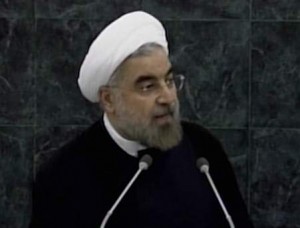
The United States, Iraq, Afghanistan, Iran, Syria and Israel
President Barack Obama addressed the 68th session of the United Nations General Assembly last week, near the end of September. His speech reflected some of the shift in global politics in the Middle East, especially in Syria. He also spoke about Iran, and mentioned the usual, “we are determined to prevent Iran from developing a nuclear weapon.” Obama said “we are not seeking regime change we respect the right of the Iranian people to access peaceful nuclear energy.” However Iran has signed on to the Non-Proliferation Treaty which recognizes the right to develop, research, produce and use nuclear energy for peaceful purposes without discrimination.
William Blum:
- One must accept the basic premise that the United States wants to dominate the world.
- In that context it becomes clear that the main problem we have with other countries is one of disobedience.
- Our closest ally in the Arab world is Saudi Arabia, if that’s not the most oppressive government in the world then damn close to it.
- We’ve overthrown the 3 leading secular governments of the Middle East. First Iraq, and then Libya, and now we’re in the process to attempt to overthrow the Syrian government.
- In ’79, the Shah of Iran was overthrown by various forces, but the ones that came to power were the Islamics.
- It’s a myth that the U.S. was totally opposed to Islam coming to power in Iran then.
- What Washington feared is the Left coming to power in Iran.
- The Left, all over the world, are the least likely to be obedient to Washington, to become a client state.
- So the Left is the first target of U.S foreign policy.
- Israel fears Iran, in the same way it fears Iraq and Libya. Any country in the Middle East that had some military power and not falling in line as an obedient friend or follower of Israel, that was a target of Israel, which means target of the U.S.
- The 3 main targets have all been attacked by Washington and that’s where we are today.
- Cuba then and now has represented what Washington fears greatly, a good alternative to capitalist system.
- They have inspired people and countries all over the world, especially in Latin America.
- It’s not very well known that throughout the 70s and into the 80s, Afghanistan had a fairly progressive government. Women had full rights. I’ve seen photos of that time, of women walking around in mini-skirts.
- What happened to that society and government? Our dear government overthrew it.
- It’s amazing when we hear people say we have to stay in Afghanistan to help the women there.
- Saddam Hussein, as much of a dictator as he was, he still ran a welfare state.
- The people in their daily life were much better off than they are today and there was peace and order
- Syria is not going to make a good client state to the United States and Israel. Syria is a bit too friendly with Russia.
- It’s amazing how sensitive we are to those who will not embrace the American empire.
- Almost all the leading people in Israel except for Netanyahu, they know Iran is not a threat. It’s all hype.
- Netanyahu needs this hype and the U.S. needs it.
- There’s a very growing trend now to be turned off by all of this war. The vote in Congress which if it were held would have been against invading Syria.
- The American public is very tired of these wars.
- Sign up for the monthly Anti-Empire Report.
Guest – William Blum, has been a freelance journalist in the United States, Europe and South America. His stay in Chile in 1972-3, writing about the Allende government’s “socialist experiment” and its tragic overthrow in a CIA-designed coup, instilled in him a personal involvement and an even more heightened interest in what his government was doing in various parts of the world. In the mid-1970’s, he worked in London with former CIA officer Philip Agee and his associates on their project of exposing CIA personnel and their misdeeds. His book on U.S. foreign policy, Killing Hope: U.S. Military and CIA Interventions Since World War II, first published in 1995 and updated since, has received international acclaim.
—–

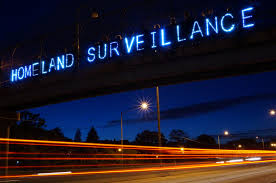
EFF Fights Back Against NSA Spying
A few shows ago we asked Attorney Carl Messineo with the Partnership for Civil Justice Fund what legal steps are they taking to stem the pervasive breach of civil liberties from the National Security Agency’s massive surveillance program. Our own Heidi Boghosian, author of the book Spying On Democracy: Government Surveillance, Corporate Power and Public Resistance has discussed in detail the public fight back from a legal standpoint. David Greene, a senior staff attorney with the Electronic Frontier Foundation brings us up to date about ongoing litigation, lawsuits and FOIA requests to continue the fight back against government and corporate spying.
Attorney David Greene:
- There’s a lot we still don’t know about how much they know about us.
- We do know that they have several programs to collect communications, data. They have a program called UPSTREAM that collects all internet communications.
- This actually happens at the fiber level. – where the switching facilities are at the splitter, split the transmissions to where the communications company wants it to go and one that actually goes toward the government.
- We at EFF have known about that and had a lawsuit pending for 7 years now.
- Our lawsuit was originally against AT&T and then Congress granted telecoms immunity, so.
- One of the other things we’ve learned about is a program that also collects internet records called PRISM. PRISM seems to be focused on collecting email correspondence between foreign targets and the United States.
- They’re basically collecting the call data of every telephone call made in the United States. Right now they’re saying they’re not collecting the content of the calls but only the metadata.
- They’re also collecting social media data as well and doing things such as social mapping.
- There are several provisions of the Fourth Amendment and some of the issues here is the prohibition against unreasonable searches and seizures.
- Basically people’s information is being searched, being seized without a probable cause. A probable cause to believe these people actually did anything wrong.
- The Electronic Frontier Foundation is an organization that fights for civil liberties in the digital world.
- Whenever you go up against the government, you’re going to be out resourced.
- There are many parts about being a free person that requires a person to operate with some degree of privacy from there government.
Guest – Attorney David Greene, Senior Staff Attorney, has significant experience litigating First Amendment issues in state and federal trial and appellate courts and is one of the country’s leading advocates for and commentators on freedom of expression in the arts. David was a founding member, with David Sobel and Shari Steele, of the Internet Free Expression Alliance, and currently serves on the Northern California Society for Professional Journalists Freedom of Information Committee, the steering committee of the Free Expression Network, the governing committee of the ABA Forum on Communications Law, and on advisory boards for several arts and free speech organizations across the country.
—–
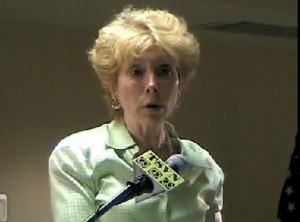
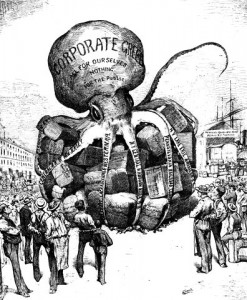
Left Forum 2013: Dr. Harriet Fraad Part 2
We hear part 2 of a presentation from Harriet Fraad, a hypnotherapist & psychotherapist in Manhattan. She writes regularly for Truthout, Tikkun and The Journal of Psychohistory. Her blog with Richard D. Wolff, Economy and Psychology appears at HarrietFraad.com and RDWolff.com. Her latest book is Bringing It All Back Home ed. Graham Cussano. Her article on Emotional and Sexual Life in a Socialist America written with Tess Fraad Wolff will appear in the book Imagine A Socialist America- (Harper Collins 2013). This panel explores what Socialism could look like in the United States.
———————————————————————————–
CIA Sponsored Terror, Civil Liberties, Criminalizing Dissent, Habeas Corpus, Human Rights, Political Prisoner, Prison Industry, Surveillance, Truth to Power
Podcast: Play in new window | Download
Updates:
—-
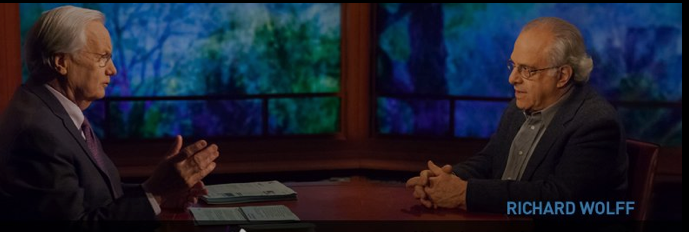
Economic Update: Professor Rick Wolff
We welcome back returning guest Professor Rick Wolff to get an economic update. Recent news of Janet Yellen emerging as a frontrunner to succeed Ben Bernanke as Federal Reserve chairman garnered the support of many Democrats in the House and Senate, yet she urged to lower payments for senior citizens on Social Security and voted to repeal the Glass-Steagal Act. Meanwhile, President Obama with the support of the Republican Party has targeted Social Security and medicare for cut backs. We talk about these topics and more with Professor Rick Wolff who hosts Economic Update on WBAI Saturdays at Noon.
Professor Rick Wolff:
- The Federal Reserve is an enormously important institution all of the time.
- It has nothing less than the mandate in this economy to control and manage and manipulate the monetary system.
- It is a wonderful reality to throw at anyone who thinks we live in a free market economy where the government plays a marginal role.
- When the government controls the quantity of money and the cost of borrowing it, its not a marginal role, its most central role a government can play.
- We have a dysfunctional Congress and President who can’t figure out what to do, unwilling to take serious steps to deal with this crisis, leaving it to the Federal Reserve.
- We are now in the worst economic crisis since the Great Depression.
- Clearly, now that we’re entering the 6th year of this calamity, and we have huge unemployment, huge foreclosures, the Federal Reserve also failed to make it short and shallow it is in fact long and deep.
- Ms. Yellen’s nomination would go through quickly and more smoothly than Summers would have. Obama and his folks don’t want a big review of how they manage the economic system since its an unmitigated disaster.
- Enough extreme right Republicans exist now in the House of Representatives to make serious the threat of denying the Federal Government the right to raise the debt ceiling.
- The President has already signaled his willingness to compromise with Republicans around Social Security, Medicare and Medicaid.
- There’s a long standing debate about measurements on the cost of living. That’s a very difficult thing to do and perfectly reasonable economists disagree.
- All they’ve done is picked the one that looks the smallest (cost of living for Social Security) to use as a benchmark to therefore give the smallest increase.
- The first thing you should understand, which is an outrageous injustice, is that the money for Social Security is only withheld from a wage or a salary.
- It’s not withheld if you earn interest income, if you earn dividend income or if you earn capital gain income.
- That’s why the tax for Social Security is called a payroll tax.
- Currently, its a payroll tax but its only on the first 113 thousand dollars a year that you earn.
- For every dollar above 113 thousand, you don’t pay anything.
- Saez and Piketty
- The inequality of wealth in the United States has gotten much worse in the last 30 years and more interesting has gotten worse across this crisis.
- That’s interesting because in the Great Depression, the crisis collapsed the gap between the rich and the poor.
- The top ten percent of American income earners this last year 2012, took home more than half the total income.
- Ten percent have half the income and the other 90 percent share the other half.
- The 400 richest people in America have more total net worth than half the population.
- There’s been movement of sheer outrage of what it means when you read about this extraordinary wealth that some people are earning 7.25.
- There are signs of upset within the United States beginning to build around this. (inequality of wealth)
- We have a minimum wage at the federal level, 7.25. We also have state minimum wages that vary all over the place.
- We have now a situation where wealth is so concentrated at the top that the folks who have that wealth understand perfectly the situation. They love the way the economy is going. They’re gathering the wealth into their own hands, but they’re not stupid.
- They understand that when you concentrate wealth that much you’re creating an impossible tension between an ostensibly democratic political system where universal sufferage means the mass of people vote on the one hand, and their concentrated wealth.
- “We have to worry that the political system will be used by the masses to undo politically the benefits we get economically.”
- A billionaire from California buys the Washington Post and a billionaire from Boston, buys the Boston Globe.
Guest – Richard D. Wolff is Professor of Economics Emeritus, University of Massachusetts, Amherst where he taught economics from 1973 to 2008. He is currently a Visiting Professor in the Graduate Program in International Affairs of the New School University, New York City. Democracy At Work.
—-
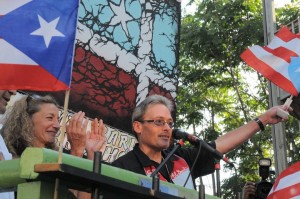

Lawyers You’ll Like – Attorney Jan Susler
Attorney Jan Susler joined the People’s Law Office of Chicago in 1982. Before that she worked as a Clinical Law Professor at the legal clinic at Southern University’s School of Law, Prison Legal Aid. Susler continues to her litigation and advocacy work on prisoner’s rights issues and also represents people wrongfully imprisoned, falsely arrested, strip searched or subjected to excessive force by police officers.
Attorney Jan Susler:
- The National Lawyers Guild was an amazing refuge. When I went to law school women were 10 percent of the class and really resented.
- It was a hostile environment, lots of rich white boys who thought they were all that.
- The GI Bill actually even things out class-wise which was a delight.
- I worked at Legal Aid, while I went through law school it kept me sane. My first job was at Law School Clinic.
- We provided civil legal services to state prisoners.
- Through the process of doing abortion rights work, anti death penalty work and prisoner’s rights work through the Guild, and then I met the folks at the People’s Law Office.
- Even to today, there’s only a handful of people who do that work and we tend to know each other.
- Michael Deutsch whose been my law partner for the last 3 decades called me up and said we have a couple of Puerto Rican radicals who have been sent to the state prison near where you’re doing your work and you need to go see them. They’re quite at risk the state considers them to be enemies.
- I knew nothing about Puerto Rico being a US colony, having been invaded, them resisting colonialism. I learned about international law making it a crime against humanity.
- They really opened my world, what gift its been for me.
- The National Lawyers Guild created a Puerto Rican project to work with Puerto Rican lawyers and activists in the Independence Movement and people who were trying to get the Navy out of the small Puerto Rican island of Vieques.
- It’s culminating in this wonderful convention we’re going to have in the middle of October in San Juan.
- There’s going to be a panel and workshop on the death penalty in Puerto Rico which the US imposes on its colony.
- There will be workshops about labor, and political prisoners.
- I think people in this country understand who Nelson Mandela is and what he stood for and sacrificed and what he meant for his country. These men and women are the same for the people of Puerto Rico.
- They were artists and working in universities. Most had college degrees, but really understood that colonialism is a crime against humanity.
- They organized clandestinely into an organization called the Armed Forces for National Liberation. They were arrested in the early 1980s and accused of seditious conspiracy.
- My job was to advocate for their human rights and educate about their situation. They refused to accept the jurisdiction of a US court.
- For the National Lawyers Guild, I’ve gone to the United Nations Decolonization Committee to present.
Guest – Attorney Jan Susler, In her 36 years as a lawyer, Jan Susler has worked with the Puerto Rican Independence Movement and with progressive movements challenging U.S. foreign and domestic policies. She was an adjunct professor of criminal justice at Northeastern Illinois University, and taught constitutional law at the University of Puerto Rico. Attorney Jan Susler joins us today as a guest on our Lawyers You’ll Like series.
——————————————————————
Afghanistan War, CIA Sponsored Terror, Civil Liberties, Criminalizing Dissent, Guantanamo, Habeas Corpus, Human Rights, Political Prisoner, Surveillance, War Resister
Podcast: Play in new window | Download
Updates:
—-

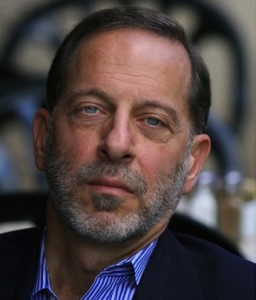
United States Moves To Intervene In Syria Civil War
According to the United Nations, nearly 2 million refugees have fled the civil war and unrest in Syria. Why is the United States moving to intervene? Professor Rashid Khalidi, an historian on the Middle East and the Edward Said Professor of Modern Arab Studies at Columbia University, and director of the Middle East Institute of Columbia’s School of International and Public Affairs joins hosts to discuss the history of the conflict and who stands to gain if the US intervenes.
Professor Rashid Khalidi:
- This is another case where the United States seems to me at least edging sideways blindly without understanding or thinking, frankly into another regional civil war which has the potential for developing into a regional conflict.
- We got involved in an Iraqi civil war, we helped create an Iraqi civil war after the occupation of Iraq. We created al-Qaeda and other horrible manifestations as part of the war against the Soviets and then got involved in what is in effect an Afghan civil war.
- The United States is about to and I hope I’m wrong, put its into a meat grinder and blindly, heedlessly push the button.
- This is a horrific conflict, with no good guys on either side. You have a horrific regime which very likely used these horrible weapons against the rebels and its own population.
- You have on the other side people who are not white knights, in fact they just as soon be killing Americans as butchering Shia or cutting the heads off people. Those are the forces that dominate. Not the opposition to the regime, but the fighting forces.
- These are people who don’t wish any of us well.
- The United States is going to war for reasons of imperial overreach, for reasons that have to do with domestic politics.
- For Iran, the Syrian regime is its most important regional ally. The Iranians see this as a make or break conflict for their regional influence.
- At the same time the new Iranian government is clearly interested in cutting a deal with the United States.
- I think a deal is within reach on nuclear issues and other issues.
- Israel would probably like to see the Syrian side bleed themselves endlessly.
- What they’re probably doing is through their supporters in this country, is quietly pushing this president toward an American intervention which is not in the American national interest but in some ways.
- I was there when he said, ‘I’m not against all wars, I’m against stupid wars.’ This is quintessentially a stupid war.
- It’s the fifth or the eighth move on each side that has the potential for escalation.
- There is a consensus of idiocy among the so-called experts.
- I have to say this, the Israelis encouraged this.
- It’s a civil war with a lot of bad guys on both sides. That is what we’re about to get directly involved with.
- Why the United States should be against the Assad regime, its a bad regime, is unclear to me, while its clear to me Israel would like a bunch of tiny, weak, divided, sectarian states such that it could lord over the region completely.
- Most people in the Arab world have a profound suspicion of the United States, because its joined at the hip with Israel, always, everywhere since time immemorial.
- On the other hand you have authoritarian regimes, petro-monarchies, Saudi Arabia, the Emirates, Kuwait, Qatar which are hell bent on imposing their regime on Syria.
- There are a lot of interests tied up in the United States lording it over everybody and acting as if it has the right and the power to decide everything everywhere. We don’t.
Guest – Professor Rashid Khalidi, is the Edward Said Professor of Arab Studies at Columbia University. He received his B.A. from Yale University in 1970, and his D.Phil. from Oxford in 1974. He is editor of the Journal of Palestine Studies, and was President of the Middle East Studies Association, and an advisor to the Palestinian delegation to the Madrid and Washington Arab-Israeli peace negotiations from October 1991 until June 1993.
—–
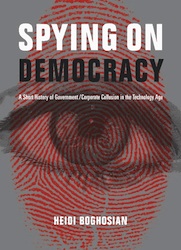

Spying on Democracy: Government Surveillance, Corporate Power, and Public Resistance
Our own Heidi Boghosian has written a powerful book on the history of spying, privacy and how public dissent without surveillance is needed in order for a democracy to thrive. The newly published book is titled Spying On Democracy: Government Surveillance, Corporate Power, and Public Resistance and it reveals in detail how the government acquires your information from sources such as telecommunications companies to compile a data base on “persons of interest.” Since ex-CIA staffer Edward Snowden’s release of top secret documents to the Guardian and Washington Post many are now aware of the frequency and scope to which they are being monitored. What this book has unveiled is how your personal consumer data is being gathered, bundled and sold. The spying, the collecting of phone records, accessing your online activity, all of it is unconstitutional says Heidi Boghosian, co-host of Law and Disorder and the National Lawyers Guild’s Executive Director.
Attorney Heidi Boghosian:
- They create dossiers of our spending habits, of our communication habits.
- The corporations benefit from this which makes them create more equipment for surveillance and almost makes it impossible for the government to perform traditional government functions because they’re so reliant on corporate partners.
- There’s also a revolving door among CEOs of these big companies and high level positions within government intelligence.
- The National Lawyers Guild was spied on by the FBI. More than 1000 agents were assigned to us for nearly 3 decades. They rummaged through our members garbage. We had an infiltrator in Washington DC serving as a staff person.
- They tried to label us (and failed) as a subversive organization.
- The People’s Law Office had also been monitored for years. Apparently across the street from the office an apartment was taken by the FBI who spied on them for their work representing politically active individuals.
- With all of this spying, the chilling effect of knowing that you may be spied on, you conversations may be listened to, changes the way you do business.
- I’ve always been interested in cooperation between municipal public police and private security organizations.
- We’re seeing an entire industry giving birth to Stratfor and other intelligence organizations that exist just to conduct intelligence be it on activists or critics of corporate or government policies, as well as defense contractors beefing up and creating a whole sector of intelligence.
- They are in big contracts with the US government.
- One of the problems constitutionally is they’re not held as private businesses to the same strictures as the US Constitution as we saw recently with the Hemisphere program revelations. We have our government paying AT&T staff to sit next to drug enforcement officers and go through AT&T’s files that go back 26 years. They’re not overseen by a judge.
- My question is how many more agencies of the government are doing this?
- They are getting access to this information through what’s called administrative subpoenas.
- Many mannequins have small cameras embedded in the eyeballs.
- When you’re spying on the fourth estate as its called which is intended to be a watch dog on government you really get to the heart of what democracy is about.
- Without a free press, we don’t have any chance of preserving those fundamental freedoms of First Amendment association and the ability to bring our grievances to the government for redress.
- A student group working with the Coalition of Immokalee Workers got suspicious because a new member on their listserve started asking questions and they did some research and found she owned her own private security company, in fact she was spying on them for Burger King.
- Congress is calling for an investigation for these large data aggragators. Once again, there’s no oversight, there’s no accountability, they go to a variety of sources to gather personal information on us. Some in the public domain, others not.
- They have vast troves, electronic dossiers on each of us.
Guest – Heidi Boghosian, executive director of the National Lawyers Guild. She is the co-host of the weekly civil liberties radio show Law and Disorder on Pacifica’s WBAI in New York and over 40 national affiliates. She received her JD from Temple Law School where she was the editor-in-chief of the Temple Political & Civil Rights Law Review. She also holds an MS from Boston University and a BA from Brown University.
——————————————————-






















